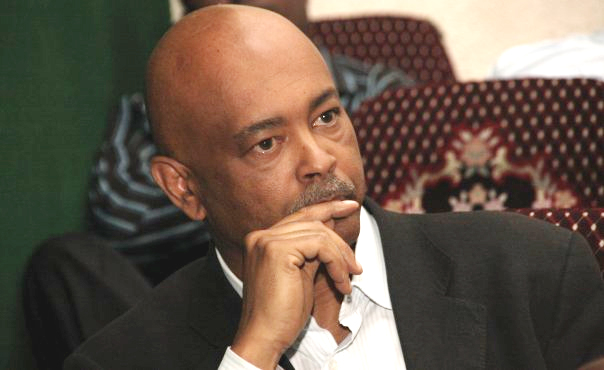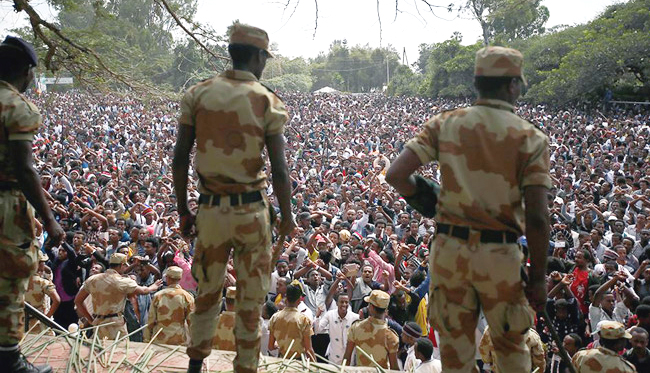You Cannot Plant Apple Seeds and Expect to Harvest Oranges
Amid positive economic growth, 2008 EC ended up exhibiting major political frailty in Ethiopia, namely a resurgence of ethnic nationalism. For now let’s just say that things are looking dangerously bleak. For some this may seem a fleeting matter, but it has profound implications not just for Ethiopia and Africa but also far beyond.
Indeed the country is at a crossroad. Its continued existence requires a high level of political maturity, responsibility and leadership. Whether you look within the ruling party or outside, people are feeling nervous and don’t like what they see and hear. If ever there was a crisis that could shake the country, many feel, this is it.
Our own take is that we are now witnessing the start of a more combustible development of redefining the regime, the nation, and the state. Recent questions about the ‘Master Plan’ in Addis Ababa or ‘Welkayit’ in Gondar are ‘non-problems’, only administrative challenges. The real problems are growing economic inequality, anemic growth, political intolerance, and seeping corruption, all with corrosive impact on the country.
At this stage a nationwide war may not be in the offing, but Ethiopia does face the potential for regime collapse. We say this, because in multi-ethnic societies like Ethiopia, ethnicity can quickly become instrument to mobilize to compete for property, rights, jobs, education, language, social amenities and more. And this makes for dodgy tension between groups with competing interests. In the past years the first signs of this tendency have been displayed tentatively, we are now entering an acceleration phase.
Senior government officials often dismiss nonpartisan analyses of the nature of problems and the impact of policies when those assessments don’t fit their ideology. In the face of the deepest political crisis the country has recently faced, the Ruling Party leaders insist the problem is just the absence of good governance… True, the lack of good governance is one major issue that contributed to the crisis. But that can’t be the only riddle.
But what exactly does ‘Good Governance’ mean?
It doesn’t really convey much unless one defines ‘Governance’. Are we just talking about efficient management? And if that’s so, do we mean the withdrawal of the state in favor of the market?
What about accountability, transparency, empowerment, and citizen participation – are these part of the government’s ‘Good Governance’ agenda too.
If yes, these don’t seem like bad ideas. But like development, they all have a dual meaning – one in the context of social transformation, another in the neo-liberal vision of good governance.
So if we take for instance, empowerment, Good Governance doesn’t mean helping people gain control over their own lives. In human history, there has never been an instance of a powerful political group voluntarily relinquishing its power. Indeed, power never relinquishes power. Which is why real empowerment is always an outcome of political confrontation and struggle – the EPRDF itself is founded by protest. As the saying goes: “Power can be taken, but not given. The process of the taking is empowerment in itself.”
The good governance model of empowerment is allergic to any rights-based empowerment. It conceives of empowerment in individualistic-consumerist rather than collective terms.
Never have I seen such a disturbing disconnect between the people and the ruling elites since the dawn of the revolution in the early seventies. The mainstream public and those exercising power have very different ideas about what the problems are. It’s a gap that is broadening and deepening because of the tenuous line of communication between the governors and the governed.
Almost all political statements from the government in the last weeks and months were empty of meaning. They mostly promise to pursue their mission to fight corruption, rent seeking, bigotry and what not, and bring more prosperity, freedom and democracy. Yet, no one has any idea how they will go about doing that. One piece of advice: it’s not enough just to change a minister or change a judge or even change a prime minister. We have to change the system to reflect our aspirations.
Wouldn’t you agree?
Wouldn’t you also agree that the party’s response to use its old democratic centralism formula to issue internally agreed resolutions for imposition on the country is simply old school.
Indeed, what’s wrong with listening to citizens including opponents, to-build a public consensus? And why? Why should only the EPRDF tell us which political set up is a good fit for Ethiopians? How is the country a better place as a result?
Looking from where we stand, anyone who thinks that political leadership means thinking that whatever one party believes is automatically right – and anyone who disagrees with it is wrong – is not part of the solution. This cannot be leadership but an addiction to being right. Unfortunately, throughout our modern history we seem to be blessed by misfortune: we generated many more leaders with rigid positions than leaders who solve problems. If only this can be reversed!
Finally, who would have imagined this? Here we are, in the year 2016, twenty plus years after the advent of the EPRDF in government to witness that the construct of democracy in Ethiopia is still in its opening act.
Source: Kebour Ghenna’s Facebook Page.




